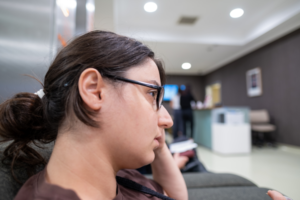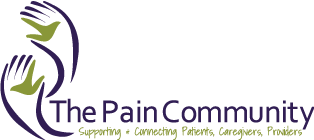By Karla Donovan
 As I sat in the waiting room of my doctor’s office, I tensed and worried if I would I be heard, understood and believed that I needed help managing my pain. Would I be labeled as a drug seeker? Would the doctor understand that I tried many different things to decrease my pain before coming here?
As I sat in the waiting room of my doctor’s office, I tensed and worried if I would I be heard, understood and believed that I needed help managing my pain. Would I be labeled as a drug seeker? Would the doctor understand that I tried many different things to decrease my pain before coming here?
Would the doctor have solutions? What will the plan be? Is my increased pain a progression of something worsening? Looking at the people around me and the office staff, I wonder if anyone else has similar problems. I worry if they knew why I was there whether I would be judged.
I am aware that many people believe those with chronic pain taking opioid analgesics are thought to have some type of addiction disorder. I am also aware that due to this social stigma, doctors are pressured to decrease opioid or other controlled medications. So many factors come into play.
As I sat there my pain increased, my heart pounded, and I felt alone and vulnerable. What would happen? I am sure I am not alone in these thoughts while waiting. This type of psychological distress occurs often and increases suffering. The fear, feeling of isolation, fear of being judged unfairly and need for acceptance, kindness and hope for relief are real.
I am fortunate; my physician was kind and provided solutions and believed me. She assisted me in my journey to control my pain and understood that my psychological wellbeing was tied to my physical health. She partnered with me in a plan, documented my efforts in my chart and found credibility in the entire plan. I walked out of the office feeling better physically and psychologically.
I know that I was fortunate because not all people have this positive experience.
